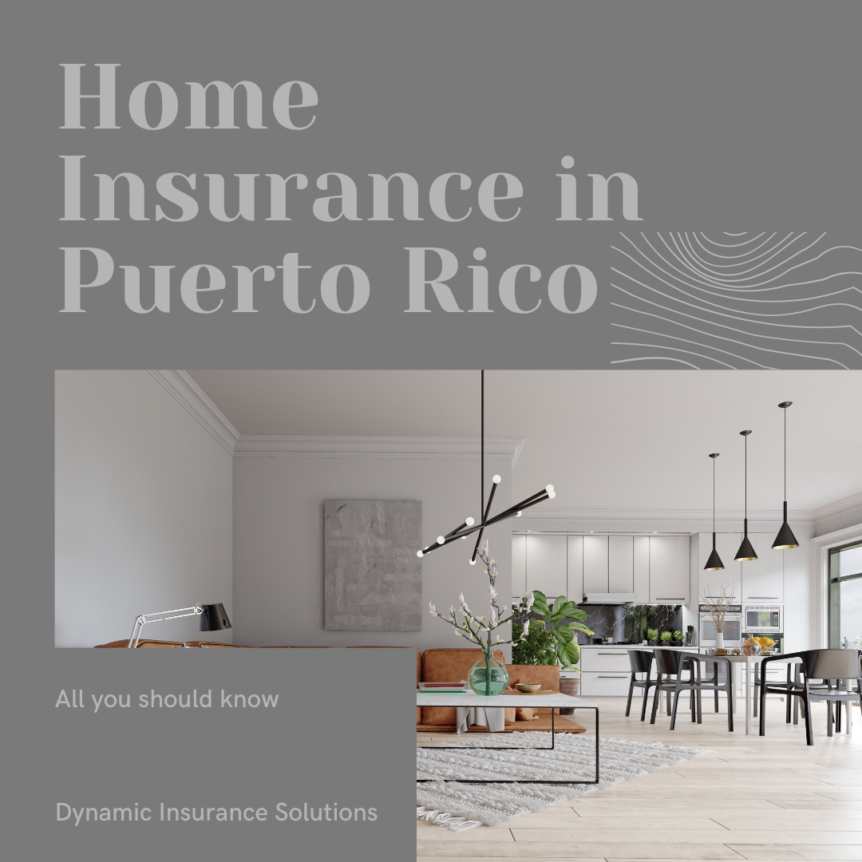Home insurance in Puerto Rico is similar in many aspects to home insurance in the United States, more so than car insurance which does differ in many aspects. There are several very important differences; however, that any prospective property owner in Puerto Rico should be aware of, as these can amount to siginificant cost or risk
Puerto Rico Insurance Context
To begin to understand the market, one must understand that Puerto Rico is an insurance market with significant property risk.
Florida has similar issues with regards to a limited amount of companies insuring in the state due to the amount of risk involved with operating in the area.
Bank Requirements
Just like in the United States, anytime there is a mortgage on a property, the lender will require an insurance policy to protect its collateral. A hazard insurance policy is all that the bank typically requires, which is a policy that will cover the structure of the property. If the property is in a flood-prone area, then the lender will typically require a flood insurance policy as well.
Homeowner’s Insurance
Homeowner’s insurance is meant to provide insurance for the policy holder’s primary residence.
Insurance when the property is rented out to tenants
It is important to understand that homeowner’s insurance has an exclusion for commercial operations, and renting out your property in any manner is considered a commercial operation. If an event occurs while the property is rented out, for example a hurricane causes structural damage to the property, then the insurance company could deny coverage due to the policy holder not complying with the terms of the policy. If you plan on renting out your property, then you should contact your insurance company to ensure you have a commercial property policy.
What if I rent my property out on AirBnb or another short term rental platform?
The same concerns of a commercial operation being ground for exclusion exist with short term rentals. We have an extensive article on the nature of short term rental insurance in Puerto Rico, which you can read here.
Insurance while a property is undergoing renovations
If a property is not continually inhabited for more than 60 days, then the property is considered vacant and coverage will exclude theft and vandalism.
Condo Insurance in Puerto Rico
Condominium insurance is a different beast altogether. In the case of condos, there is a master policy for the entire building and the apartments that the condo association votes on as an unit. Once a policy is selected, each apartment owner pays their portion of the policy, which covers their apartment as well as a portion of the common areas. The proportion that each unit owner must pay is determined as part of a condo valuation that is done as part of the quoting process.
Full Value Policies
A full value policy, as the name implies, insures a condo for the full value of the entire structure and all its apartment units. This includes things such as kitchen remodelings, replacement windows and other improvements unit owners may have effected. In 99% of cases, condo owners in a building that is insured with a full value policy do not need any supplemental insurance to cover their unit, other than getting some insurance to cover their personal belongings and content.
Bare-Wall Policies
Bare-wall policies, on the other hand, insure only the core structure of the building. These policies exclude any improvements made by unit owners, which are termed “elementos privativos” in Spanish. For this reason, every unit owner in a Bare-wall insured condo needs a supplemental home insurance policy in order for their property to be sufficiently covered.
Special Cases
Flood Insurance
Flood damage is always an exclusion in homeowner’s policies, and in cases where the property is located in a floodable area, it is highly recommended to purchase a separate flood policy. These policies are subsidized by the federal government, but even then they are often more expensive than a traditional homeowner’s policy because flooding is by far the greatest risk to a property in a floodable area. If the property has a mortgage, the bank will require a flood policy.
Changing insurance providers when there is a bank
Whenever there is a bank, in order to change the actual insurance policy on file, the insurance broker needs to be named as the insurance broker of record. In many cases, the homeowner does not choose the insurance provider, goes with the default insurance that the bank assigns, and then at a later time tries to shop around. While a broker can provide quotes without being named the agent of record, being the agent of record allows the agent to get the full policy from the bank and ensure that any quotes obtained are an apples to apples comparison with the current policy. Otherwise, the bank won’t give the agent any information.
